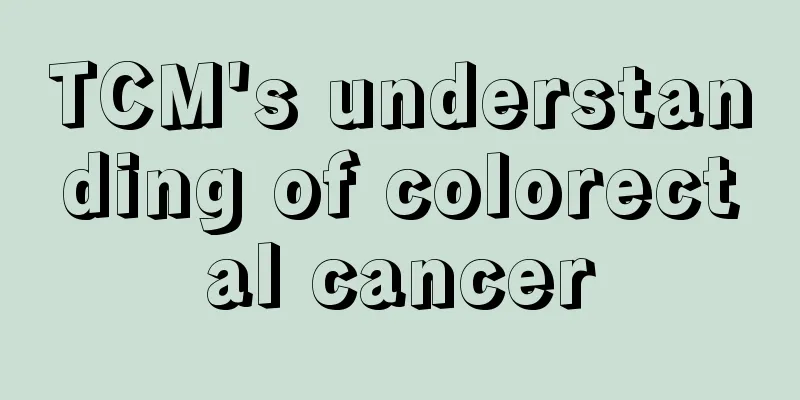TCM's understanding of colorectal cancer

|
Colorectal cancer is a common malignant tumor of the digestive system. It is currently generally believed that the onset of colorectal cancer is related to the combined effects of multiple factors such as genetics, environment, and diet, which lead to atypical hyperplasia and carcinoma of the intestinal mucosal epithelium, seriously affecting the patient's quality of life, with a high mortality rate and poor prognosis. There is no term for colon cancer in traditional Chinese medicine. Current research has found that colon cancer is similar to disease descriptions in traditional Chinese medicine such as "syndrome", "accumulation", "visceral poison", "intestinal polyps", and "anal hemorrhoids". TCM's knowledge of colorectal cancer can be traced back to more than 2,000 years ago, when its etiology and pathogenesis were described in detail. Since then, successive medical schools have further explored and supplemented the understanding and treatment of this disease from different perspectives. By the Ming and Qing Dynasties, TCM had a fairly comprehensive understanding of this disease. Combining the discussions of various doctors, it is unanimously believed that the cause of this disease is caused by factors such as improper diet, worry and depression, long-term diarrhea and dysentery, fatigue and physical weakness, exposure to external pathogens, and accumulation of dampness and toxicity. These factors damage the spleen and stomach, and the essence of water and grain cannot be transported and transformed, and the distribution is not good, resulting in the internal generation of dampness and turbidity. According to Mongolian medical theory, colorectal cancer occurs because the bad blood flow produced by the essence that has not been transformed by the liver is retained in a weak part of the intestine and then mixed with the Hei. Furthermore, the Hei and blood heat cause damage to the intestine. It is a polymeric chronic disease. Tips- Heyi is a term used in Mongolian medical theory. Mongolian medicine uses the relationship between the three roots of "Heyi", "Xila" and "Bada Gan" to explain the physiological and pathological phenomena of the human body. The so-called "Heyi" refers to the power of various physiological functions. |
<<: 6 imaging examinations for primary liver cancer
>>: Three epidemiological characteristics of rectal cancer
Recommend
What is the correct way to apply essence?
As we age, the self-repair ability of human cells...
Why do the backs of my hands sweat so much?
The blood circulation in the body is relatively f...
How long can you live if liver cancer spreads in the late stage
How long can you live if liver cancer spreads to ...
The fastest food for moistening the intestines
The foods that moisturize the intestines the fast...
Baby's skin hemangioma?
It is a very common phenomenon for babies to have...
How to use hair softener can actually be harmful
Combing your hair after getting up every morning ...
How can I refresh myself
Nowadays, whether students or office workers, eve...
What are the dangers of teratoma in the early stage
Ovarian teratoma is a relatively rare disease. Th...
To prevent colorectal cancer, you must endure hardships, be vigilant, and check frequently
Rectal cancer is a type of cancer caused by eatin...
Why is the incidence of prostate cancer high? What kind of fruits and vegetables are better for prevention?
In recent years, prostate cancer has a high incid...
The reason why a person's temperament changes drastically
Under normal circumstances, people will show diff...
Can colon cancer cause other cancers?
The cruel facts in recent years show that the inc...
Swallowing saliva feels like there is a foreign body sensation
Saliva is a liquid secreted by the human body tha...
What vitamins do men lack that make them more susceptible to prostate cancer? Which vitamins can prevent prostate cancer?
Prostate cancer is a malignant disease that serio...
What's the matter with the large pieces of dandruff on the scalp?
If you find that you have large patches of dandru...









